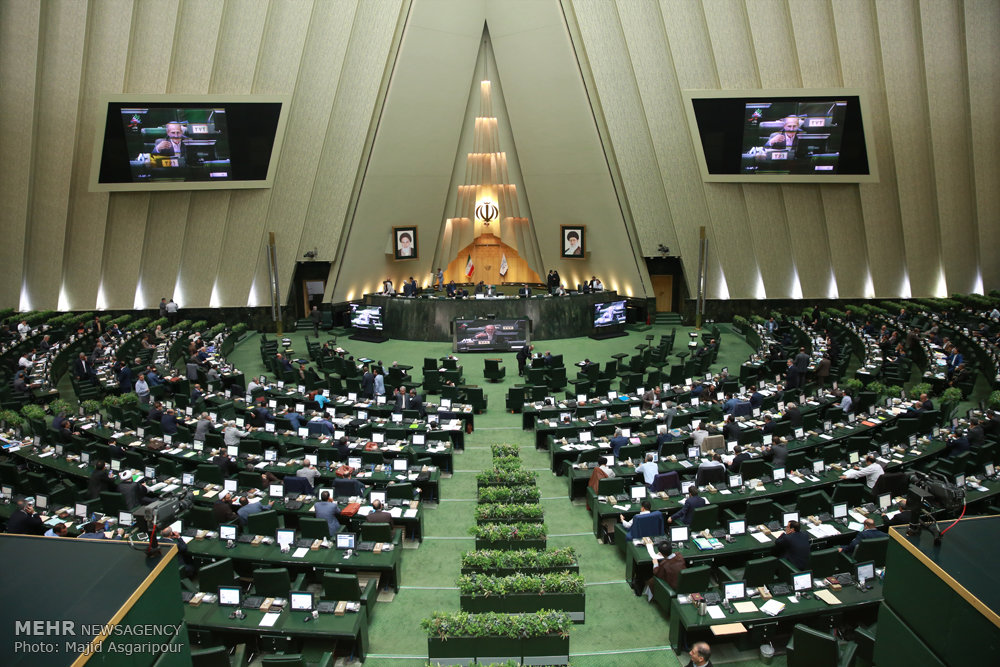Could death end drug-related offences?

The Majlis (Iranian parliament) on Sunday approved the general outlines of a controversial bill proposing limitations on death penalty for drug offenders.
Out of 245 MPs present in the 290-seat parliament 182 voted in favor of the bill. It will become a law after being thoroughly studied by the parliament’s Judicial Committee and confirmation by the Guardian Council.
The bill, which was first put forward last year, would conditionally exempt those who commit drug-related crimes due to poverty and unemployment from death penalty. However, those offenders who carry deadly weapons while trafficking drugs as well as drug lords and those with criminal records will still get death sentence.
A review of drug sentencing laws in Iran
Laws pertaining to drug sentencing in Iran criminalize those who perpetrate drug-related offences including import, export, cultivation, manufacture, distribution and sale of drugs depending on the amount and origin of the drug either being synthetic/semi-synthetic [also known as opioids] or natural [also known as opiates].
As per the law, import, export, cultivation, manufacture, distribution and sale of 5 kilograms or more of opiates such as opium or 30 grams or more of opioids such as heroin are capital offences.
In case of opiates, the offenders who do not have any criminal records and did not succeed in distribution or sales of 20 kilograms of drugs or less would face life imprisonment. More than 20 kilograms of drugs is a capital offence in any case.
Pros and cons
Not unlike other bills or amendments, there are some who are either in favor of the newly adopted law or against it.
Those in favor of the law reason that some are victims of poverty and unemployment especially in cities adjacent to border areas and do not deserve death sentence.
"Most drug offenders, especially those in border areas would commit such crimes due to poverty and the felons manage to escape punishment. Capital punishment is not an effective deterrent, we must figure out another alternative," Jalil Mohebbi, a jurist, said on Sunday.
“An unemployed young guy who makes a mistake must be given another chance; they should not be charged with felony offense,” Mohebbi added.
Majlis Judicial Committee spokesmen Hassan Norouzi also voiced his consent, saying that harsh punishment is not effective and would not decrease illicit drug trafficking.
"We are not planning to overturn sentence for violent offenders and drug lords; what we are saying is to spare those first-time offenders from severe sentences," Norouzi stated.
Big shot drug lords would usually escape death penalty by spending big money and hiring experienced lawyers, Norouzi lamented.
However, lawmakers who were against the law, argued that the new law would increase manufacture and distribution of drugs but death penalty sends a strong signal to would-be offenders and deter them from committing crimes. They believe that the bill needs to be discussed for further modification.
Crimes punishable by death in Iran include murder, rape, child molestation, sodomy, drug trafficking, armed robbery, kidnapping, terrorism and treason.
Human rights organizations and groups as well as Western media outlets have frequently criticized the Tehran government for high number of executions in the country. However, Iranian officials say they are fighting a large-scale drug war along its eastern borders and cite an increase in number drug lords and dealers as a reason for a rise in number of executions.
Last October Iran’s Human Rights Council secretary Mohammad Javad Larijani said drug-related offences account for 93 percent of executions in Iran though all in compliance in law.
“Capital punishment should be limited to drug lords. This will cut the number of executions (in Iran) immediately,” Larijani said in what seemed to be a setback from a tougher stance taken previously.
Iran is a neighbor to Afghanistan, a leading producer and supplier of the world’s drugs. It also faces big challenges at home with a young population susceptible to a variety of cheap and abundant addictive drugs.
The country is also located on the Balkan route which traverses Iran (often through Pakistan), Turkey, Greece and Bulgaria across South-East Europe to the Western European market.
The Balkan and northern routes are the main heroin trafficking corridors linking Afghanistan to the huge markets of the Russian Federation and Western Europe.
According to Executive Director of the United Nations Office on Drugs and Crime (UNODC) Yury Fedotov, Iran is directly or indirectly involved in almost 40 percent of all drug confiscations around the world.
Nevertheless, the newly introduced bill, adopted to limit death penalty for drug-related crimes most significantly for first-time offenders with clean criminal records, will demonstrate Iran’s flexibility in applying its policy on the international scale.
MQ/PA
